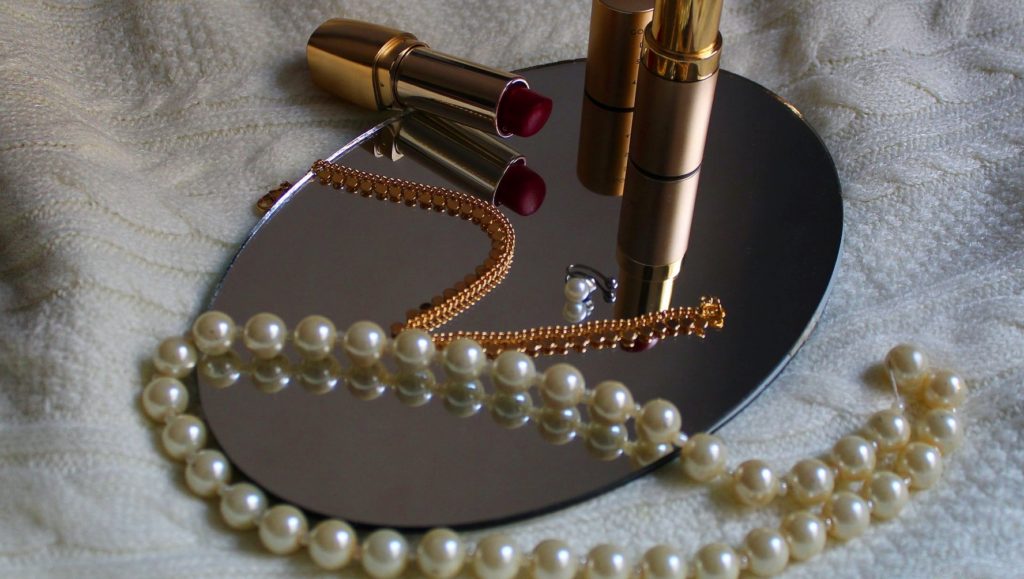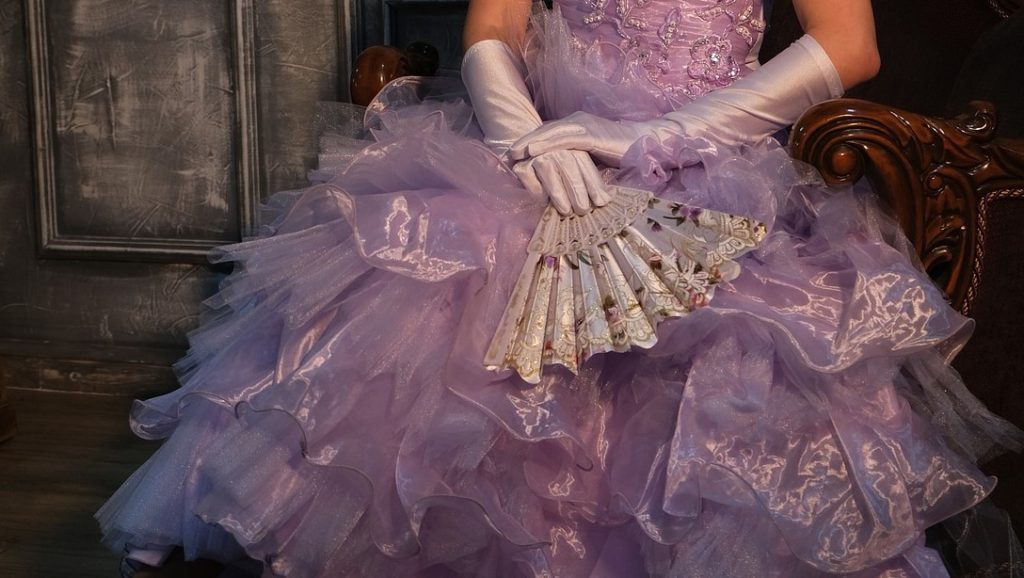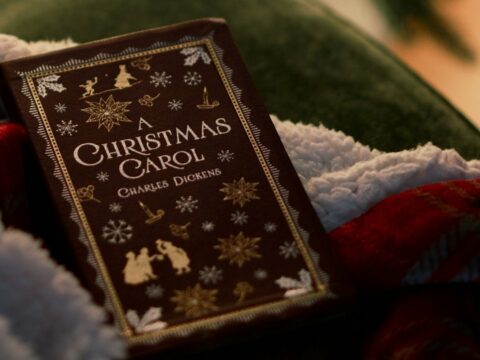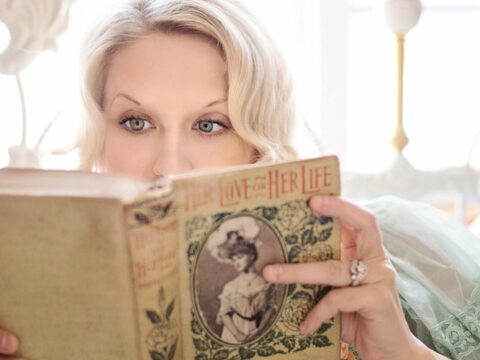How many times had [Isabelle] cut away parts of herself at her mother’s demand? The part that laughed too loudly. That rode too fast and jumped too high. The part that wished for a second helping, more gravy, a bigger slice of cake. If I marry the prince, I will be a princess, Isabelle thought. And one day, a queen. And no one will dare call me ugly ever again.
Stepsister, Jennifer Donnelly
Lots of books tell fairy tales from the villain’s perspective. It’s a fantastic way to subvert the genre, and I’ve read some villain-centric retellings that were awfully interesting and others that were just mediocre. But I’ve never read a villain story that made me think that villain could be me—until now.
In my search for exceptional retold fairy tales, Stepsister by Jennifer Donnelly showed up on just about every “you’ve got to read this” list. It had to be at least decent, right? When I opened Stepsister myself, the first thing I read was the dedication: to everyone who’s ever felt that they’re not enough. So basically a book for every human being who’s ever lived? That’s a high bar to set for a fantasy novel, but boy, did it deliver.
Here are the non-spoiler reasons why everyone—especially every girl—needs to read this book.
This Story Is Just Raw
Stepsister is so relatable and dives into such painful realities of being female that it gets . . . pretty raw to be honest. In the best possible way.
The main character, Isabelle, shows up in the first line of Chapter 1: “In the kitchen of a grand mansion, a girl sat clutching a knife. Her name was Isabelle. She was not pretty.” This non-pretty girl is about to cut off her toes to fit into the glass slipper I might add. Her older sister, who’s already failed, is sitting nearby and bleeding heavily from her missing heel.
Most of us have read the Grimm version of Cinderella where each ugly stepsister mutilates her foot to deceive the prince. But I’ve never once read an accurate depiction of how terrifying and bloody that scene would be. Not only do the girls have to go through this surgery without any pain relief, they also have to walk in heels directly afterwards. And not cry.

This is exactly what Isabelle endures in the first three pages of the book. The way Donnelly wrote it had me enthralled.
But Isabelle’s Motivations Are What Got Me
Again, we’re all familiar with the ugly stepsister trope. Two girls who are such selfish gold-diggers that they’re willing to cut up their feet to marry a prince. But Isabelle’s reasons for going through with this were quite different.
In the very first chapter, we learn not only that Isabelle is brave and articulate, but that her family is on the brink of ruin. They’re in danger of losing their home, and their mother has been unable to find a single man willing to marry either of her biological daughters.
Isabelle is well aware that the future of her family rides on her foot fitting in that shoe. And so does her worth in the eyes of her mother.
Donnelly painted this character’s lack of self-esteem in such excruciating detail that I immediately felt for her. These ugly stepsisters have suffered far worse abuse at the hands of their proud mother than Cinderella ever did. Frankly I think any of us would turn out bitter after years of emotional trauma and humiliation.

But bitterness isn’t Isabelle’s defining trait. In that moment as she’s bracing herself to cut off her own toes, the thing that makes her brave enough is the idea of making all the taunts, sadness, and feelings of inadequacy stop. The thought of her mother finally calling her a good daughter. For Isabelle, the idea of being loved by her only parent is enough to attempt grisly treason that could easily get her beheaded.
Isabelle desperately wants someone to want her. And I never imagined that a character could make me hope that the ugly stepsister would get the prince after all.
Ugly Stepsister vs. the World
This book gets into some pretty ugly truths about what society expects of women, and its historical French setting made these messages even starker.
Back then, being an unmarriageable, ugly girl meant financial ruin if there were too many daughters in a family and not enough money to support them. This book takes this even further by giving the ugly stepsisters a lack of looks and an overabundance of characteristics proper ladies aren’t supposed to have. Isabelle is a fierce tomboy who loves getting dirty and riding horses. Her older sister is wildly in love with the ancient philosophers and mathematics. But unfortunately for them, their society doesn’t permit women to attend university or enlist in the army.

My favorite part of this book was also what made it so hard to read: the fact that these ugly stepsisters are actually awesome. They’re intelligent, funny, and frankly quite likeable. But because they’re ugly, they’re viewed as a waste in their society. And to themselves.
The Scene I Remember Most?
This book goes back and forth often between Isabelle’s present and painful memories of her past. One of the first ones in the book was the day little girl Isabelle figured out she was an ugly stepsister.
When a pair of gentlemen visit the house, Isabelle realizes for the first time just how different she is from her beautiful stepsister, Ella. Ella is the type of girl men adore and praise and call a “pretty rose.” Isabelle is the girl that’s scolded and called a “dirty monkey.” That was the beginning of her troubles.
That scene stood out to me because of an experience I had in fourth grade. An adult helping out with our class party asked me about a girl in my elementary school class. When I gave her name, this adult gushed that she was so tall and mature and very pretty. Even at nine years old, I put the pieces together that people liked tall, pretty girls. And that I wasn’t one of them. That totally offhand comment wasn’t intended to hurt me, but I still remember that it stung.

Sometimes We All Feel Like the Ugly Stepsister Too
I think that’s the real reason Isabelle is such a relatable character. Because in today’s society, no girl alive can live up to the Photoshopped beauty standards we all ache to embody. We tell ourselves it’s not important and try not to compare. We all want to believe that we’re more than what we look like as we continue buying clothes and wearing makeup and working to stay thin, even as we tell ourselves this really shouldn’t matter.
Isabelle does that too, feeling that siren call that she isn’t enough. But she also doesn’t give up. Throughout this story, she fights to reclaim her real self and make her mark in a society that wasn’t designed for ugly women. Both are themes we all need to read about.
You Should Really Try This Book
I don’t dare give you more plot details about Stepsister for fear of spoiling it, but it knocked my socks off. The writing was fantastic. The magic was darkly captivating. The pace got faster and faster all the way to the climax. And the very fact that I had no idea if the book was going to have a happy or sad ending says so much about this story. No matter who you are, this ugly stepsister tale will fill you with a desire to be kinder—especially to yourself. ❧




